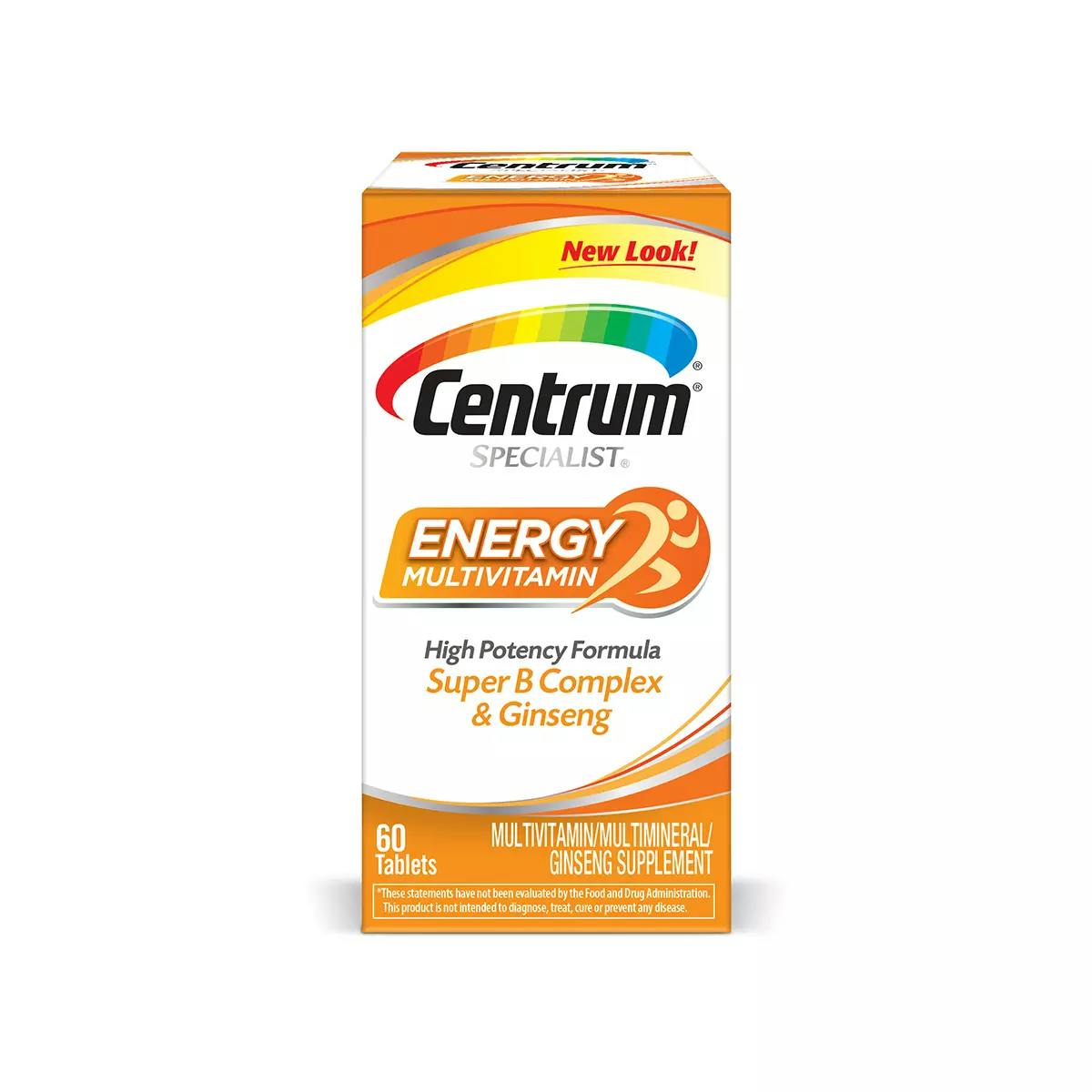Vitamins & Minerals for Healthy Aging
At some point or another, many of us wish we could turn back the clock and take better care of our bodies sooner. And although we can’t, there are things we can do now to effectively help support our health as we age. Depending on your health goals, age and stage of life, you may need more of a certain vitamin than you can’t get from food alone. Centrum® can support your goal of healthy aging and longevity with a list of vitamins that you can start incorporating in your daily life.

Vitamin B12
Vitamin B12 is a nutrient that helps keep the body’s nerve and blood cells healthy and helps in the production of DNA, the genetic material in cells.
In order for your body to absorb vitamin B12 from food, your body must first utilize the hydrochloric acid normally found in the stomach to separate vitamin B12 from specific proteins in your food. Vitamin B12 then combines with a protein made by the stomach which allows absorption into the body.i
As we age, the hydrochloric acid in the stomach begins to decline, making it difficult for the body to absorb vitamin B12 from food. Because of this, it’s often recommended that people over 50 supplement their diet with fortified foods or dietary supplements, as vitamin B12 may be easier for their bodies to absorb when taken this way.ii
Food sources of vitamin B12 includeiii:
- Beef liver and clams—these are the best sources of vitamin B12
- Fish, meat, poultry, eggs, milk and other dairy products
- Breakfast cereals and other food products that are fortified with vitamin B12
Vitamin D
Vitamin D is the main nutrient found animal foods and fortified foods that promotes calcium absorption to help maintain strong bones. Our muscles need vitamin D to move, nerves need it to carry messages from the brain, and the immune system needs vitamin D. It’s safe to say this nutrient has a lot of jobs.
People over the age of 50 have an increased risk for vitamin D deficiency and the risk continues to increase as people age. As we age, our bodies don’t make vitamin D when exposed to sunlight as efficiently and our kidneys are less able to convert vitamin D to its active form.iv Because of this, it’s important to ensure you’re getting the recommended amount of daily vitamin D for your age range.
If you are 51 to 70 years old, the recommended daily intake is 15 mcg (600 IU) for both males and females. If you are over age 70, the need increases to 20 mcg (800 IU) per day.v
Food sources for vitamin D includevi:
- Fatty fish like salmon, tuna and mackerel
- Beef liver, cheese and egg yolks provide small amounts
- Mushrooms provide some vitamin D
- Most of the U.S. milk supply is fortified with 400 IU of vitamin D per quart, as are plant-based alternatives like soy milk, almond milk and oat milk
- Vitamin D can be found in some breakfast cereals and some brands of orange juice, yogurt, margarine and soy beverages. Check the labels of products to find out whether they’re fortified with Vitamin D
Calcium
Calcium is the most abundant mineral found in the body and most of the body's supply is stored in our bones and teeth, where it supports their structure. It is also needed for our muscles to move and for nerves to carry messages between the brain and body parts. In addition, calcium is used to help blood vessels move blood throughout the body and to help release hormones and enzymes that affect our bodies’ functions.vii
Certain factors can affect the amount of calcium absorbed in the digestive track—one of them is age. Calcium absorption becomes less efficient as we grow older, so recommended calcium intakes are higher for people over the age of 70. Additionally, your vitamin D intake directly correlates with how your body absorbs calcium—vitamin D actually increases your calcium absorption.viii
The recommended daily amounts of calcium depend on gender and age, as bone loss speeds up during your 50s, especially among women.ix Men age 51-70 need 1,000 mg each day. Men 71 and older and women age 51 and older need 1,200 mg a day.x
Calcium is found in many foods, includingxi:
- Milk, yogurt and cheese
- Kale, broccoli and Chinese cabbage
- Fish with soft bones, like canned sardines and salmon
- Most grains, like breads, pastas and unfortified cereals
- Calcium can be found in some breakfast cereals, fruit juices, soy and rice beverages, as well as tofu. Check the labels of products to find out whether they’re fortified with Vitamin D
Magnesium
Magnesium is another mineral that is plentiful in the body and helps to keep us healthy. From helping to regulate muscle and nerve function to making protein, bone and DNA, magnesium plays an important role in our health.xii
Men older than 70 are more likely to have lower intakes of magnesium. In general, people with higher intakes of magnesium tend to have higher bone mineral density, which is important for supporting healthy bones during the aging process.xiii
The recommended daily amounts of magnesium depend on gender and age. Women age 51 and over need 320 mg each day. Men need 420 mg per day.xiv
Good food sources of magnesiumxv:
- Legumes, nuts, seeds, whole grains and green leafy vegetables, like spinach
- Fortified breakfast cereals and other fortified foods
- Milk, yogurt and some other milk products
Aging is an inevitable part of life and it’s important to maintain your health through every step. Whether you consume these vitamins and minerals for longevity through food or supplements, they each play an important role in your body. For more great health tips like this, be sure to visit the Learn With Centrum.











